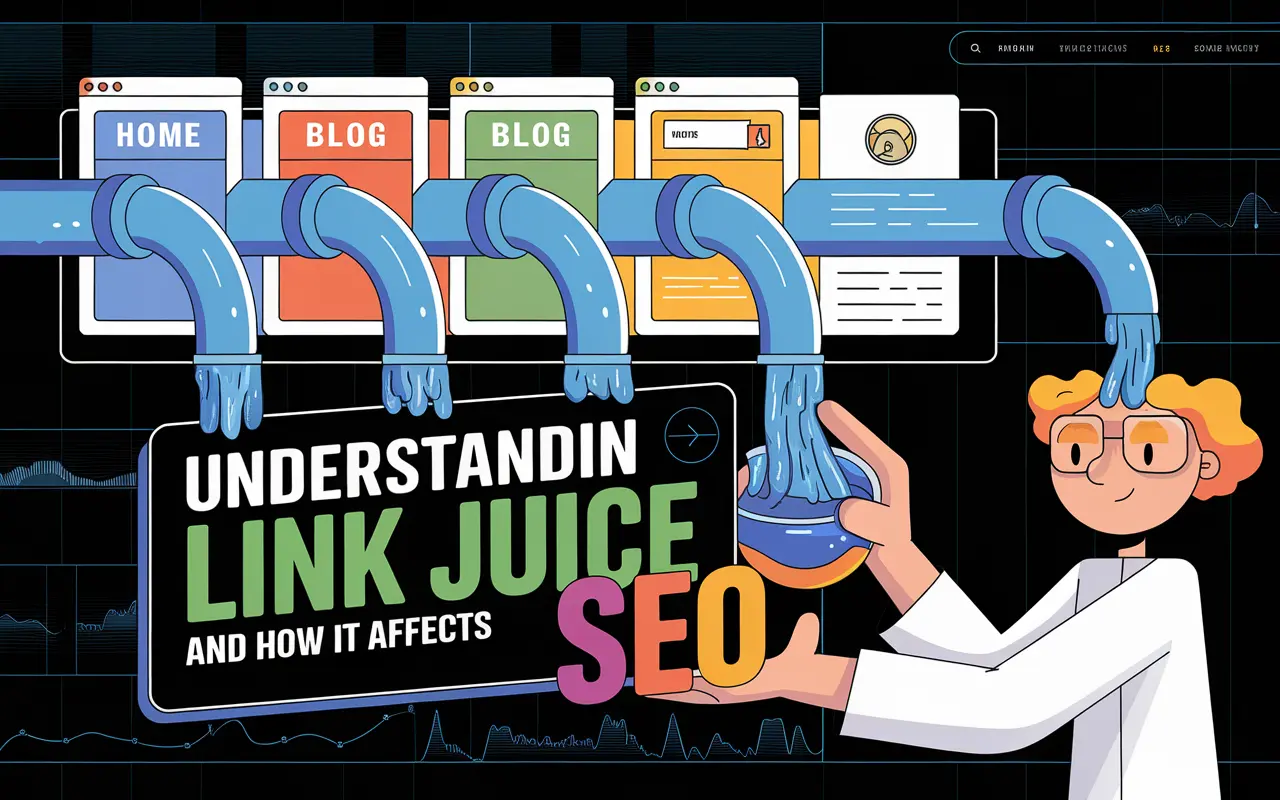What is Link Juice and Why It Matters in SEO?
Link Juice is an SEO term that refers to the value or authority passed from one web page to another via hyperlinks—especially backlinks. This value transfer plays a crucial role in how search engines like Google rank pages, helping to determine a site’s authority, relevance, and trustworthiness.
Not all links are created equal. When a high-authority website links to another, it shares some of its credibility—this is Link Juice. Understanding how Link Juice flows through your website and external backlinks can significantly impact your organic search performance.
In the grand scheme of your SEO strategy, distributing link equity correctly can elevate key landing pages, strengthen site architecture, and improve crawlability—all contributing to higher search visibility and organic growth.
Key Takeaway
Link Juice refers to the SEO value passed from one webpage to another through hyperlinks, heavily influencing search rankings, domain authority, and user trust.
Why Link Juice is a Critical Component of SEO Strategy
Link Juice is fundamental for both on-page and off-page SEO success. Search engines interpret backlinks as votes of confidence. The more quality Link Juice your website receives, the more likely it is to rank for competitive keywords and dominate SERPs.
Boosts Domain and Page Authority
Authoritative backlinks contribute Link Juice that increases your Domain Authority (DA) or Page Authority (PA), signaling trustworthiness to search engines.
Improves Internal Navigation
By strategically distributing Link Juice across internal pages, you can strengthen the SEO value of product pages, service pages, or blog content, enhancing user experience and crawl depth.
Enhances Indexing and Crawlability
Proper link structures help search engine bots find, index, and rank new or lower-traffic pages, ensuring no SEO opportunities are left untapped.
Best Practices to Maximize Link Juice
- Prioritize Quality over Quantity of Backlinks: Aim for backlinks from high-authority, niche-relevant websites.
- Use Do-Follow Links Strategically: Only do-follow links pass Link Juice. Make sure your important backlinks are not set to no-follow.
- Implement Clean Internal Linking Structures: Link your authoritative pages to lower-ranking content to spread equity naturally.
- Avoid Broken Links: Broken links interrupt the flow of Link Juice. Regularly audit and repair them.
- Utilize Anchor Text Wisely: Use descriptive and keyword-rich anchor text to add contextual relevance to links.
- Leverage Content Hubs: Create pillar content that links out to relevant subpages, allowing for efficient flow and distribution of Link Juice.
How Link Juice Flows Through the Web: A Technical Breakdown
Link Juice flows through both external backlinks and internal links. When a webpage links to another, it shares a portion of its authority with the linked page.
Do-Follow vs No-Follow Links
Only “do-follow” links pass Link Juice. “No-follow” links contain a tag that tells search engines not to pass ranking equity, such as user-generated content or paid ads.
Distribution of Link Juice
When a page links to multiple destinations, its Link Juice is divided among those links. This makes smart internal linking and fewer outbound links per page more efficient for SEO.
| Link Type | Passes Link Juice? | Common Use |
|---|---|---|
| Do-Follow | Yes | Natural editorial links, internal links |
| No-Follow | No | User comments, sponsored links, widgets |
Case Study: Strategic Use of Link Juice to Boost SEO
Problem: Underperforming Product Pages
An eCommerce brand struggled to rank their higher-margin product pages, even though their blog consistently pulled in solid organic traffic and backlinks.
Solution: Redirecting Link Juice Through Internal Links
The SEO team added contextual internal links from high-ranking blog posts to specific product pages using optimized anchor text. They also cleaned up broken outbound links and removed unnecessary no-follow tags within the site architecture.
Results: 78% Increase in Organic Sales
Within eight weeks, the targeted product pages saw a 45% uplift in rankings, leading to a 78% increase in organic sales and a 28% boost in time-on-site, all due to smarter Link Juice distribution.
Common Mistakes to Avoid in Managing Link Juice
- Overuse of No-Follow Tags: These block Link Juice from flowing, often unnecessarily.
- Orphan Pages: Pages without internal links can’t receive Link Juice and often go unindexed.
- Too Many Outbound Links: Dilutes Link Juice passed to individual pages and can harm trust.
- Link Spamming: Building too many low-quality backlinks penalizes your site under Google’s spam policies.
Related Terms
Backlinks: External links directing users from another website to yours, crucial in passing Link Juice.
Domain Authority: A score indicating the strength of a website, largely influenced by Link Juice.
Internal Linking: Links within your website that help distribute Link Juice and assist navigation.
FAQs About Link Juice
Link Juice refers to the SEO value or authority passed from one webpage to another via hyperlinks. It influences the ranking power of the linked page.
No, no-follow links do not pass Link Juice. They instruct search engines not to transfer ranking credit to the linked page.
Increase Link Juice through high-quality backlinks, strategic internal linking, and a clean site structure to maximize authority flow.
Yes, internal links play a vital role in distributing Link Juice throughout your site, helping underperforming pages rank better.
Conclusion: Maximize Your SEO Potential with Smart Link Juice Management
Link Juice is an essential SEO concept that determines how authority flows between web pages. By understanding how it works, applying best practices, and avoiding common pitfalls, marketers can unlock powerful improvements in rankings, engagement, and sales. Prioritize clean site architecture, cultivate high-quality backlinks, and empower internal pages through thoughtful linking strategies to amplify your online presence and search engine trust.
Explore more SEO strategies to grow your business on our SEO Solutions Page.






